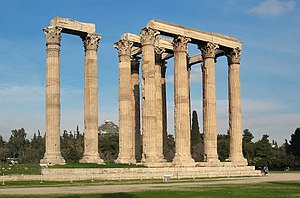 Ok, so my hope was to understand something – no matter how small – of this seminal work by Van Til. At the time of writing this post I have reached page 53 covering an extremely helpful introduction to the book by Scott Oliphint, Van Til’s preface and introduction and his section on Christian theology. I’ve also read the section on ‘The Christian Philosophy of Reality’ and have just started the next section on ‘The Christian Philosophy of Knowledge’.
Ok, so my hope was to understand something – no matter how small – of this seminal work by Van Til. At the time of writing this post I have reached page 53 covering an extremely helpful introduction to the book by Scott Oliphint, Van Til’s preface and introduction and his section on Christian theology. I’ve also read the section on ‘The Christian Philosophy of Reality’ and have just started the next section on ‘The Christian Philosophy of Knowledge’.
My concern is this: have I bitten off more than I can chew? Do I actually have the ability to comprehend what is read? With no training in philosophy or theology a great deal of what has been read has the ‘whoosh factor’ as it goes flying over my head. There’s little point in trying to comment on his introduction as it sets the philosophical context for a series of academic objections to his apologetic. The footnotes are vital here but the bulk of it is beyond me – a second reading may provide some clarity. [What’s interesting though is the comment on ‘knowing’ a flower (p. 16ff). I’ve heard this before as a criticism of Van Til , but if I have understood it aright, it’s the criticism that is attributed to him and not what he actually wished to communicate – this will, I trust, become clearer.] Having confessed that, over the years my reading of sound Christian literature and listening to sound theology and especially through reading and studying the Scriptures I find myself in complete agreement with Van Til’s brief section on Christian Theology. I see this theologically as a safe place to be. When venturing out into unfamiliar territory it’s important to have a framework or a strong tower to which one can retreat or regroup. The foundations that Van Til lays out forms such a framework. My counsel to any new Christian is get these foundations in place as quickly as possible. One of the best places to get these is the 2 Volume Study Guide to the Westminster Shorter Catechism by G I Williamson.
The theological headings (foundations) covered are: 1) The Doctrine of God, 2) The Doctrine of Man, 3) The Doctrine of Christ, 4) The Doctrine of Salvation, 5) The Doctrine of the Church, and finally 6) The Doctrine of the Last Things.
It’s important – I believe – to be honest about my reading as a lay person. I’m not a specialist but an ordinary believer wishing to understand Van Til in order to effectively defend the faith. That’s my little caveat.
Onto A Christian Philosophy of Reality. Again, much of this is over my head despite the notes by SO (Scott Oliphint) until reaching ps. 52 & 53 under heading 3. ‘Sin and Its Curse’ whereupon I read the following:
‘When men ask us, What is, according to your notion, the nature of reality or being?, we shall have to say that we cannot give an answer unless we are permitted to split the question. For us God’s being is ultimate, while created being is, in the nature of the case, derivative.
Again, if we are asked, What do you think of the relation of the eternal to the temporal?, we reply that the eternal for us does not exist as a principle but as a person, and that as an absolute person. Accordingly, we do not use the eternal as a correlative to the temporal; we use he notion of the eternal God as the personal creator of the temporal universe.’
We are brought here face to face with practical implications (in part) of God existing as a Triune person in complete blessedness. He is totally other than we are as His creatures, He has no need of us, at all. Yet, out of His love and free grace He has chosen to redeem a people for His glory, sending His own blessed and glorious Son to shed His precious blood to pay the price of redemption. With that I’ll end. More to follow in due course.
Like this:
Like Loading...









